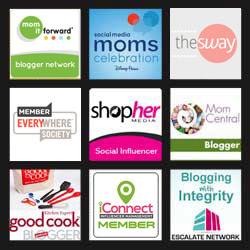
The results? Kids who avoided peanuts for the first five years were seven times more likely to be allergic to peanuts. 86% of the babies and toddlers who ate peanuts and peanut products did not develop a peanut allergy by the time they turned 5 years old.
It seemed like a good idea at the time: With the incidence of peanut allergy climbing among children, the American Academy of Pediatrics advised parents in 2000 to keep peanuts far away from infants and toddlers who might have a life-threatening reaction to them.
But a new study suggests that advice did more harm than good.
About 3% of children in developed countries are now allergic to peanuts, the study authors say. The rate in the U.S. has tripled over less than two decades, according to figures from the U.S. Centers for Disease Control and Prevention.
A long-awaited clinical trial has found that small children who avoided peanuts for the first five years of their lives were up to seven times more likely to wind up with a peanut allergy than kids who ate peanuts at least three times a week.
The researchers examined the children in two groups — the 85% who had no sensitivity to peanuts at the start of the study and the 15% who were already developing peanut allergies.
In both groups, the results were striking.
Among the children with no sign of peanut allergy at the start of the trial, 13.7% of those who avoided peanuts became allergic by the time they turned 5.
But among the children who ate peanuts regularly, only 1.9% became allergic. That amounted to an 86% relative reduction in peanut allergy risk, the study authors found.
“The results of this trial are so compelling, and the problem of the increasing prevalence of peanut allergy so alarming, new guidelines should be forthcoming very soon,” they wrote in an editorial that accompanies the study in the New England Journal of Medicine. “The LEAP study makes it clear that we can do something now to reverse the increasing prevalence of peanut allergy.”
I’m no doctor, and I have no medical background whatsoever, but I remember hearing this advice when I was pregnant with my sons (now 10 and 7) and when they were babies. At that time, experts were telling pregnant mothers to avoid peanuts and nursing mothers not to eat peanuts either because it might cause your child to be allergic through the milk. I remember talking to my mother about it, who very matter-of-factly said “I ate peanuts when I was nursing you, and you’re not allergic.”
I considered that nursing moms pass a lot of antibodies and immunities on to their kids, and babies are exposed to a lot of foods and flavors through mothers’ milk too. I ate peanuts & peanut butter the whole time I was pregnant and when nursing my children, and they ate peanut butter as toddlers too. Neither is allergic to peanuts.
It does make me wonder how much “expert advice” truly is wrong:
- Over the past week, we’ve learned that the advice to avoid eggs and other cholesterol-laden foods is wrong. Eating these does not raise cholesterol. The New York Times writes, “Americans, it seems, had needlessly been avoiding egg yolks, liver and shellfish for decades.”
- We were told to eat less salt. Now we know that decreasing salt consumption increases the risk of death. We need salts.
- In September 2014, the US Dietary Guidelines Committee recanted its advice that people stick to a low-fat diet. We need fats to survive, and many fats are beneficial.
- We were told to avoid saturated fats. Now we know all saturated fats aren’t evil, and some are good for you.. Bring on the butter!
Studies are showing too that being “too clean” increases allergy risks as well. Studies have shown that children who live with pets develop fewer allergies. The L.A. Times article about the peanut allergies also notes:
The trial results offer fresh support for the so-called hygiene hypothesis, which ties the rise in allergies and autoimmune disorders to the ultra-sterile environment made possible by antibacterial soap, disinfectants and other cleansers that have become staples of modern life.
Indeed, a study published Monday in the journal Pediatrics found that children whose families used dishwashing machines were more likely to have allergies than kids whose plates were washed by hand.
All of this unnatural cleanliness robs the immune system of the opportunity to develop resistance to germs and other substances that humans used to encounter on a regular basis.
The result is less immune tolerance — and more allergies.










Pollysmom says
God made dirt, dirt don’t hurt!!
I lived on peanut butter sandwiches when I was in grade school and I don’t have a peanut allergy. We don’t have kids yet, but we have 3 cats and our kids will likely live on PB sandwiches as I did. Putting kids in a bubble does more harm, I think, in the long run. Their immune systems need to learn to fight off the little stuff so it can tackle the big stuff!! And I’m not a doctor either, nor do I play one on TV.
jcsteenwyk says
I lived on PBJ sandwiches through all my pregnancies and nursing. However, my 2nd child has a peanut allergy which we found out by giving him Ritz Bits with peanut butter when he was 2 years old.
sebrugger says
I, like many of you, grew up eating PB&J sandwiches. My all time favorite candy is (was) peanut butter M&M’s. After the birth of my 3rd child, I was happily eating a giant sack of peanut butter M&M’s and ended up going into anaphylaxis. How in the world did I end up developing that lame allergy. I blame all three of my kids, lol.
J.R. says
Medicine, like any other science, changes as we learn more. To treat a child born today the way I was treated when I was a toddler would be malpractice.
My generation was raised without seat belts (at least until we were older), without child seats, without helmets when riding bicycles, without measles vaccines, and so many more things common today. We survived. Well, some of us didn’t. I’m old enough to have one cousin that suffered from polio as a child.
When today’s toddlers are senior citizens, imagine how much farther science and medicine will have advanced from where it is today.